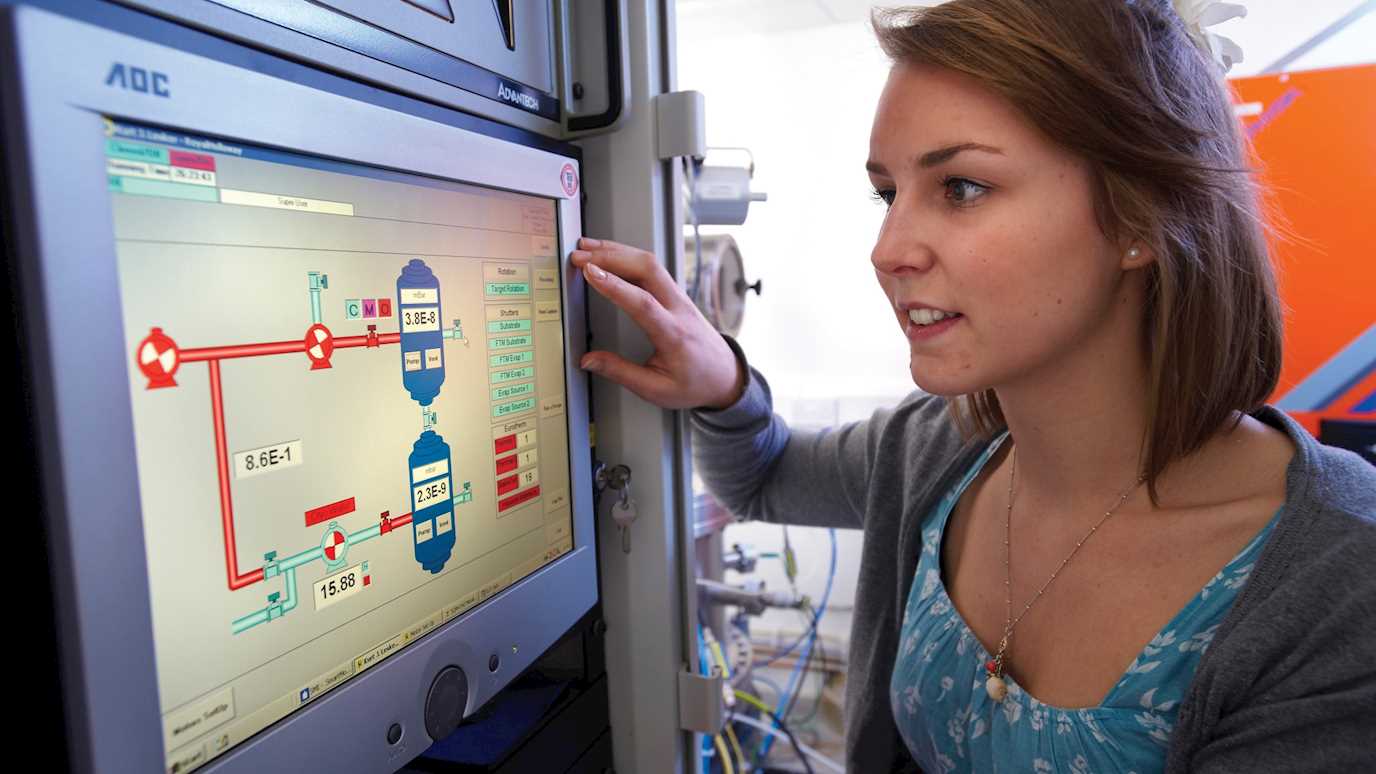|
Department of Electronic Engineering
Dr Beenish Ayaz & Professor Shyqyri Haxha
beenish.ayaz@rhul.ac.uk
Shyqyri.Haxha@rhul.ac.uk
Smart Robotic Sensor Network Design for Secure, Independent Living: Empowering Individuals with Mobility Impairments:
As the global population increases, the number of individuals with mobility impairments increase, there is a growing need for innovative solutions that foster independence and improve the quality of life. This PhD project aims to design and develop a robotic sensor network-based system that enables secure, independent living environment for individuals with mobility challenges. By integrating advanced robotics, sensor technologies, and IoT, the project will create an intelligent, responsive, and secure home environment tailored to the specific needs of the user. The proposed system will utilize a network of sensors and robotic components embedded in the home environment to monitor and assist users in real time. This could include smart appliances, wearable devices, and mobile robotic assistants that can interact with the user and the environment to provide seamless assistance with everyday tasks, such as mobility support, healthcare monitoring, and emergency response, while ensuring system integrity and user data privacy.
Key research questions include:
• How can robotic systems and sensor networks be integrated into daily environments to assist individuals with mobility impairments in a safe and ethical manner?
• What are the most effective methods for ensuring real-time assistance while maintaining system security and user privacy?
• How can machine learning and AI enhance the adaptive capabilities of these systems?
Students applying to this project will have the opportunity to explore cutting-edge fields such as robotics, IoT, AI, and cybersecurity. The interdisciplinary nature of this research will appeal to students passionate about developing technological solutions that improve lives, while advancing the field of assistive technology for an inclusive society. This research has the potential to transform independent living for millions of individuals worldwide. It addresses the growing societal need for inclusive, accessible technology that promotes dignity and autonomy for vulnerable populations. |
|
Department of Electronic Engineering
Dr Vladimir Dyo
vladimir.dyo@rhul.ac.uk
Advancing Radar Communication Systems to Protect Vulnerable Pedestrians:
Pedestrians, especially children and wheelchair users represent some of the most vulnerable groups on our roads, frequently facing serious and life-threatening injuries. A recent study by the Department of Transport revealed that in 2022 alone, 5900 pedestrians were seriously injured in Great Britain. The social impact of these injuries cannot be overestimated as they often result in long-term physical, emotional, and financial burdens for the individuals affected, their families, and the wider community. These incidents place significant strain on healthcare services and contribute to societal inequalities, particularly affecting lower-income groups who may lack access to adequate support or rehabilitation services.
Although modern cars are equipped with radar-based pedestrian detection systems, they fail to detect certain individuals, such as children or wheelchair users, due to smaller size or unusual posture, which make them less detectable to automotive radars.
The goal of the proposed PhD program is to explore the application of metallised textiles to enhance the radar detectability of vulnerable pedestrians to prevent or reduce road accidents. Metallised textiles are made of fine metallic fibres wrapped around non-metallic cores or interweaved into the textile, and can reflect radar signals, thus improving the target visibility. While prior work explored these materials in the context of wireless security and privacy, e.g. in RFID blocking wallets, there has been lack of research on using conductive fabrics for enhancing radar cross section of vulnerable pedestrians, such as wheelchair users. Specifically, the PhD will investigate the reflective properties of such textiles for the design of novel radar reflective hi-vis jackets. The proposed research will strengthen RHUL's existing academic and industry collaborations, including the collaboration with the UK’s only manufacturer of the road safety equipment, which is also an ISO committee member for “Active Safety Test Equipment". |
|
Department of Electronic Engineering
Dr Stefanie Kuenzel & Dr Maureen Ayikoru
Stefanie.Kuenzel@rhul.ac.uk
Maureen.Ayikoru@rhul.ac.uk
Technical solutions for socially responsible demand side management whilst delivering net-zero:
The increasing integration of renewable energy in the power system requires a shift to more flexibility on the demand side. Energy suppliers have started incentivising households to change their daily habits (e.g. laundry, cooking, EV charging) via time-of-use tariffs, to ensure the time of peak power consumption can be shaped to match available generation in the network.
“London, 12th December- Octopus Energy customers across the country have been paid £1 million for reducing their energy usage during the company’s first four ‘Saving Sessions’. Octopus’ revolutionary energy-saving scheme is enabled by National Grid ESO’s new ‘Demand Flexibility Service’ which allows households to get paid for shifting their energy usage out of peak times.”
The required change is not affecting society evenly, with fears the pressure to adapt may be felt disproportionately by women as well as disadvantaged households. This PhD project conducts demand side flexibility simulations to answer the question whether we can develop demand side flexibility services which are sensitive to the societal impact of requesting behavioural change of different parts of society. The aim is to develop a demand side response, which delivers the flexibility required for a network with a high integration of renewable energy, while prioritising the needs of disadvantaged groups. Possible approaches could be type-of-use tariffs as well as type-of-user tariffs.
This research is inter-disciplinary, you will have Dr Stefanie Kuenzel, Head of the Power Systems Research group at Royal Holloway University of London as your primary supervisor and Dr Maureen Ayikoru, Climate in Focus Lead for the Centre for Research into Sustainability, School of Business and Management as your second supervisor. Please contact stefanie.kuenzel@rhul.ac.uk for any questions or related PhD project proposal ideas. |
|
Department of Electronic Engineering
Dr Stephen Alty
Steve.Alty@rhul.ac.uk
Creativity first, Science Follows: An AI-based approach:
Electronic Engineering education has traditionally employed demanding mathematics than most topics found among courses in Engineering. In some cases, the technical challenges posed by some courses have made it difficult for students to complete those courses successfully. Hence, Engineering Education is inherently non-inclusive by design. Here in the Department of Electronic Engineering, we advocate for creativity to be nurtured in the first place, after which the science will flow naturally. This way forward has equipped our EDI students to cope with the technical aspect of engineering, graduate, and are now working in various industries such as in data analytics and engineering. In fact, our pedagogical approach based on creativity was published in
“Creativity First, Science Follows: Lessons in Digital Signal Processing Education,” in IEEE Signal Processing Magazine, May 2021.
However, there are no advanced scientific methodologies to i) measure various degrees of creativity; ii) explore the influence of creativity on accessibility and inclusiveness in engineering courses; iii) propose solutions for existing engineering courses that falls short of creativity, inclusivity and fairness; iv) investigate generative artificial intelligence (AI) that fosters creativity and inclusivity in the creation of new courses.
To address these shortcomings in education, this research proposes the adoption of AI for education in the following ways:
- AI-driven tutoring strategies such as AI-powered performance metrics for inclusivity and creativity and intelligent grouping of students to promote student engagement, fairness & inclusivity, and creativity.
- Integration of AI into Engineering Education to facilitate curriculum development and revolutionise education delivery.
Mitigation of the “digital” divide through AI-powered engineering education, including delivery for EDI students with special needs, and between the (ageing) lecturers and students.
This research will offer an opportunity for the education sector to catch up with the latest advances in AI technology, whilst promoting inclusivity through creativity. |
|
Department of Physics
Dr Asher Kaboth
Asher.Kaboth@rhul.ac.uk
Environmental Sustainability for Future Dark Matter Experiments:
This PhD project is focused on studying environmental sustainability factors for a future dark matter experiment and will explore the intersection of cutting-edge physics and environmental stewardship.
Dark matter is one of most interesting and vibrant areas of physics research, searching for the unknown particle(s) composing 80% of the mass of the universe. The XLZD experiment, a next generation xenon-based dark matter experiment, will open vast new areas of parameter space in this search. The experiment is in a design and engineering phase, where design choices can have large impact on both scientific and environmental factors. For example, the choice of detector materials can result in the experiment having much lower embedded carbon yet also change the detector’s sensitivity to dark matter. This project will aim to optimize both scientific and sustainability goals of the experiment through simulation and life cycle analysis.
By balancing scientific goals with environmental sustainability, this PhD project will contribute to a model of sustainable scientific research in the next generation of physics experiments and work towards aligning the field of particle physics with NetZero goals.
The successful student will have a strong computing and data analysis background, and an MSc or MSci in physics or a closely related subject.
|
|
Department of Information Security
Dr Yiannis Tselekounis & Dr Elizabeth Quaglia
Yiannis.Tselekounis@rhul.ac.uk
Elizabeth.Quaglia@rhul.ac.uk
Cryptographic techniques to prevent coercion in digital environments, ensuring that users can act freely without external pressure or manipulation:
Cryptography is playing an increasingly critical role in modern society, underpinning the security of online banking and financial transactions, communications, and voting systems. Its goal is to ensure privacy, integrity, and freedom of expression in digital interactions. Despite the technical safeguards cryptography offers, these freedoms can be undermined by threats such as online intimidation and coercion, which compromise users’ autonomy.
This PhD project aims to explore cryptographic techniques to mitigate the impact of malicious behaviours that threaten the freedoms enabled by cryptography. Specifically, the project will investigate cryptographic solutions to prevent coercion in digital environments, ensuring that users can act freely without external pressure or manipulation. The project will focus on the following areas:
Electronic voting: A key focus will be coercion resistance in electronic voting systems, a critical area where ensuring the authenticity of voter intent is paramount. We will study how the concept of delay-based cryptography, which ensures that secrets can be recovered only after a specified amount of time, can be used to enhance protection by giving users time to reconsider or escape undue influence.
Secure messaging: Secure messaging is a widely used class of cryptographic protocols used by billions of users and popular applications such as Signal, WhatsApp, Facebook Messenger, Skype, Google Allo, Wire, and more, allowing groups of clients to communicate securely over untrusted network and server infrastructure, providing the strongest possible security guarantees. The project will study the security of secure messaging protocols, aiming for strong anti coercion and abuse resistance mechanisms.
The proposed research seeks to invent new cryptographic techniques and protocols that will provide strong security guarantees for honest users, while identifying and exposing malicious behaviours.
A strong background in Computer Science or Mathematics is required.
The proposed advisors (Elizabeth Quaglia and Yiannis Tselekounis) are experts in cryptographic protocols, with combined experience in secure voting, advanced privacy notions and secure messaging protocols. |
|
Department of Information Security
Dr Christian Weinert
christian.weinert@rhul.ac.uk
Privacy-Enhancing Technologies (PETs) for Social Good:
Are you driven by the potential of advanced technology to address societal challenges? Our project, “PETs for Social Good”, offers an exciting opportunity to explore the development of privacy-preserving technologies (PETs) for processing sensitive data with a focus on enabling positive societal impact. Inspired by initiatives such as the Boston Women’s Workforce Council’s (BWWC) use of Secure Multi-Party Computation (SMPC) to measure gender and racial wage gaps, this project aims to design and implement PETs-based solutions that protect the data of marginalized and at-risk groups while fulfilling a broader social purpose.
You will tackle the technical and non-technical challenges in developing PETs that can be applied in sensitive contexts. Your research will focus on ensuring that these technologies allow organizations to extract meaningful insights without compromising the privacy (as well as security and safety) of vulnerable populations, and by extension all citizens. Key questions include: How can PETs be adapted to meet the specific needs of at-risk groups? What are the technological and practical trade-offs when ensuring both user and data privacy as well as system security and usability?
This project offers interdisciplinary collaboration opportunities, drawing on expertise in cryptography, computer and social sciences. The research will involve potential case studies in fields such as income inequality, healthcare disparities, and workforce diversity, contributing to a growing effort to use technology for social good while maintaining robust privacy protections.
Depending on the background of the successful applicant, the deliverables of the project can be cryptographic protocol designs and attacks, proof-of-concept implementations (e.g., privacy dashboards), and participatory risk modelling frameworks. We look forward to discussing the project in more detail with interested applicants.
|
|
Department of Computer Sciences
Dr Santiago Franco
Santiago.FrancoAixela@rhul.ac.uk
How can GPS-jammed drones determine their location using a combination of cooperative, ML and symbolic-AI driven methods:
Using symbolic AI methods will enable drones to reason and effectively represent environmental uncertainties such as “safe landing zones”, “restricted areas”, etc. ML visual methods will be used to extract semantic information from sensor data. This work will involve the creation of digital twins of small UAV platforms, and the development of an accurate, realistic simulation environment, in which the behavior of different cooperative learning strategies can be observed and evaluated. The purpose of this work will be to enable the development of efficient, accurate algorithms to ensure the safety of Beyond Visual Line of Sight (BvLOS) drone delivery systems.
The project focuses on developing a comprehensive framework to identify how drones can cooperatively determine their location, assuming unreliable GPS and telecommunications infrastructure. The student will be expected to create a high-fidelity, simulation environment encompassing a representative ecosystem of drones and sensors. This tool will provide the means to verify the behavior of different AI algorithms under various conditions of GPS outage, jamming, or spoofing. It also serves as a substantial contribution to design-time validation of AI-assisted drone navigation algorithms in its own right. The Omnidrome facility provides a safe, controllable environment for real-world testing of UAVs for this research.
Research areas to be pursued:
- How can AI techniques be used to represent and reason about the spatial environment in which multiple drone operate, for example dynamic and complex settings like urban environments?
- How can symbolic reasoning be combined with ML approaches to improve a drone’s ability to adapt to stressful conditions like GPS outage, jamming or spoofing, while maintaining interpretability and explainability in its decision-making process?
Key outcomes:
- Safety in Public UAV systems: Establish a safety-first method of verifying cooperative problem-solving in crisis scenarios. Omnidrome will provide a safe test environment for validation of simulated behaviors, in real space.
- Societal Impact and Policy: Supporting creation of education and public information campaigns to ease the integration of manned and unmanned systems in shared spaces, such as public delivery. This work will also inform government policy for backup UAV positioning systems.
- Verification of Cooperative Recovery Mechanisms: Investigating the theoretical and empirical correctness of the simulator. You will use the Omnidrome Facility to ensure that digital twins of selected UAVs correctly replicate the flight characteristics of those platforms.
This PhD project offers opportunities for candidates interested in simulation, autonomy, safety, AI, and cybersecurity to address these cutting-edge challenges. |
|
Department of Computer Sciences
Dr Anand Subramoney
anand.subramoney@rhul.ac.uk
How can we democratise access to large AI models and reduce their environmental footprint?:
How can we lower the computational requirements of large AI models to make them more widely accessible and make them more energy efficient?
This project aims to develop technological solutions to (i) democratise access to large AI models and (ii) reduce their environmental footprint.
Currently, most large models with advanced capabilities require massive amounts of computing in the form of GPUs. Only large corporations can afford this, which makes training or even running such models out of reach for a vast majority of people, hindering transparency and accountability.
Furthermore, the current rate of energy consumption in the AI sector is alarming. By 2027, it is estimated that the AI sector alone will consume as much energy as the entire country of the Netherlands. This underscores the urgent need for our project.
In this project, we will address these problems by developing approaches to make AI models more efficient to train and run and also explore using novel ultra-efficient brain-inspired “neuromorphic” hardware for AI to reduce their energy footprint. We will develop innovative training algorithms and ML architectures, such as spiking neural networks that use asynchrony, physical and temporal sparsity, and locality for efficiency. The human brain (which runs on a mere 20W of power) will significantly inspire our work. We will also work closely with computational neuroscience and neuromorphic hardware groups, providing interdisciplinary and international cooperation opportunities.
Some background material:
- Youtube video on introduction to this topic: https://www.youtube.com/watch?v=T5nG_5UZ_yk
- Research paper using bio-inspired features for language modelling: https://openreview.net/forum?id=lJdOlWg8td
See primary advisor's profile for more background reading: https://anandsubramoney.com |
|
Department of Computer Sciences
Dr David Tena Cucala
david.tenacucala@rhul.ac.uk
Explainable Graph Neural Network-Based Models for Real-World Graph Data:
Graph Neural Networks (GNNs) are a family of machine learning models that have been successfully applied to many real-world problems involving graph-like data. Their predictions, however, are difficult to explain using human-understandable concepts from the relevant application domain.
*Monotonic GNNs* and *Max GNNs* are two novel subclasses of GNNs which enjoy well-defined connections with rule-based formal languages. Rules are much easier to understand by humans: their application is intuitive, and they are formulated in terms of properties and relations that capture meaningful concepts of the application domain. This connection between GNNs and rules opens the way for new applications that combine the powerful learning capabilities of GNNs with the clarity of rules. For example, the predictions made by a GNN could be explained using meaningful, easy-to-understand rules. This can help in fostering trust in the predictions of GNNs, in making this technology more accessible, and in ensuring compliance with legislation on algorithmic explainability. Furthermore, the connection with rules can be exploited to formally prove properties of the GNN model, which is crucial in safety-critical applications.
The aim of this project is studying the application of these novel GNN systems to *real-world* graph datasets for domains relevant to social impact, such as social science, biomedicine, or energy. The student should identify a key domain and task that requires learning a function (which will be achieved by training a GNN model) and interpreting this function in a human-understandable way (e.g. finding rules that explain the function's output), offering new insights to relevant stakeholders. The student will have ample freedom in choosing the specific domain of application, the most suitable model, and the target task. They could also design new GNN-based architectures for their task and establish connections between such architectures and rule-based formal languages. |
|
Department of Computer Sciences
Professor Li Zhang
Li.Zhang@rhul.ac.uk
Exploiting Biodiversity-Well-being Relationships Using Explainable Precision Social and AI Models:
Human activities have been identified as significant drivers of climate change and the decline of biodiversity. These detrimental effects directly impact human mental and physiological well-being. As a result, achieving sustainability has become an urgent global goal. While aiming for net zero emissions is a positive step towards restoring ecological balance, it does not guarantee a secure future from a further deterioration that may lead to human extinction. Despite having a basic understanding of the relationship between climate change, biodiversity, and human actions, we lack precise models that offer accurate guidance on altering the course of Nature. To take more effective action, we require Precision Social and AI models that comprehend the various key factors influencing nature's ecosystems in different regions and globally. These models will enable us to identify optimal solutions for achieving sustainability locally and globally. Our aim: This project aims to validate the hypothesis that biodiversity, climate change, and human activities are closely associated with each other, and develop Nature-Inspired Explainable Precision Social and AI Models that help understand the causality of ecosystems in Nature’s own ways. Through these precise models, we will study relationships between biodiversity/climate change and human mental and physiological well-being, and identify optimal solutions to achieve sustainability with minimal efforts. By developing a nature-inspired revolutionary Precision Social and AI framework, we will better address climate crises, biodiversity contingencies, as well as human mental and physiological well-being.
The project will be supervised jointly by top researchers from Computer Science (Professor Li Zhang), Psychology (Dr Gabriele Bellucci), and Health Studies (Dr Mark Lee) in RHUL, and top experts from Royal Botanic Gardens, Kew, and DDM Health.
Applicants should have a First-Class degree in Computer Science/Psychology/Social Science with programming skills in Python/MATLAB/C++/Java. A relevant MSc is desirable. Research expertise in machine/deep learning would be advantageous. |
| |


























